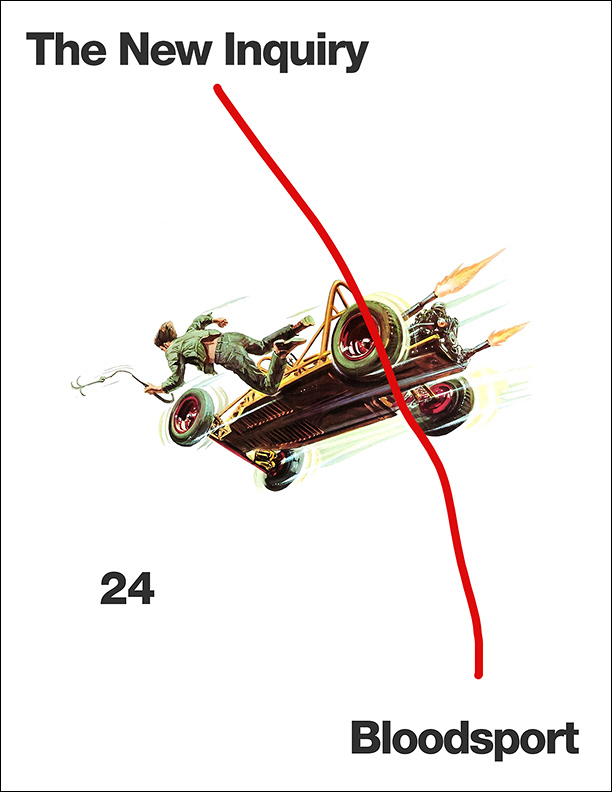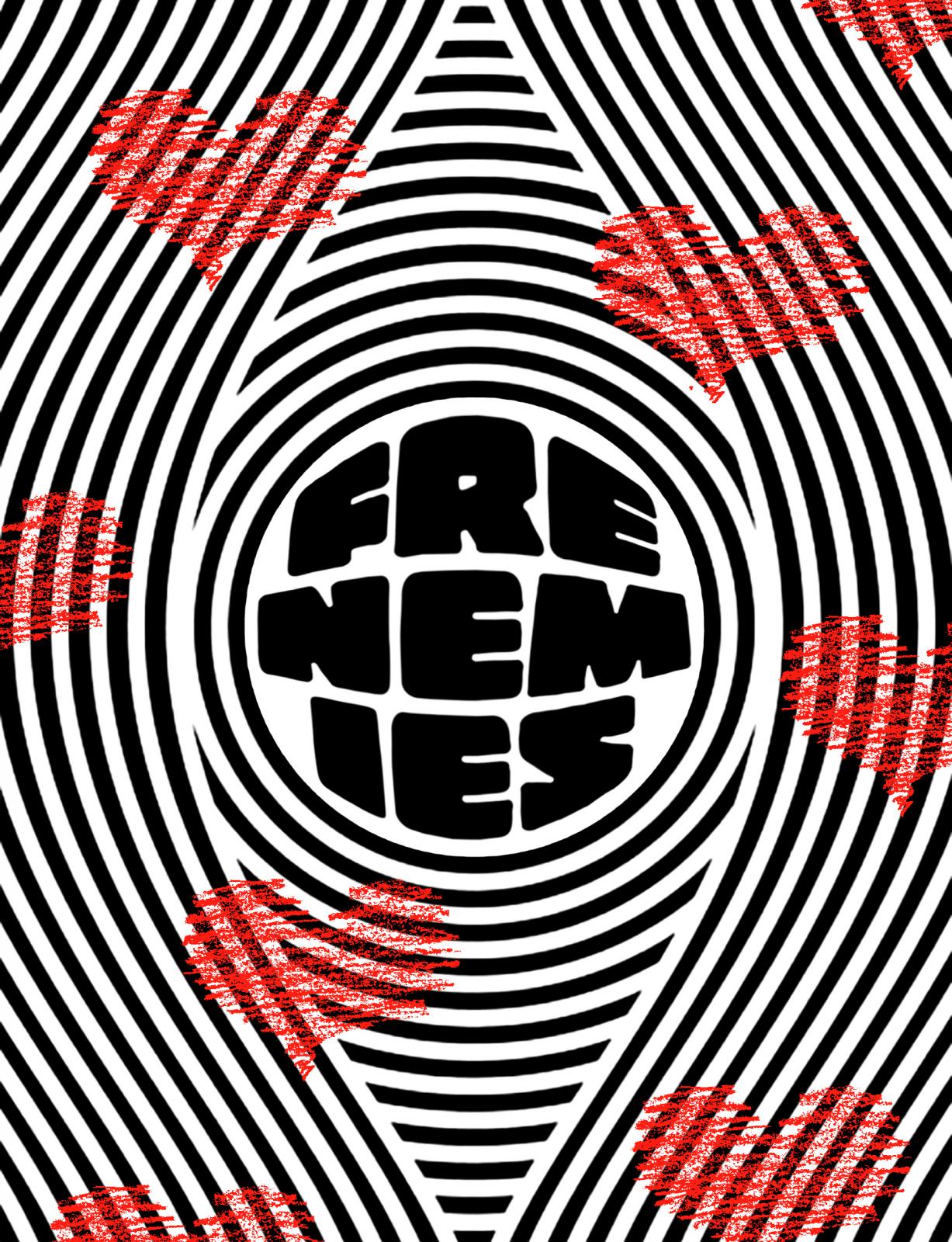Bloodsport
Editors' Note
Sports lends itself to abstraction. A whole baseball game gracefully nestles into a box score; football and basketball playbooks look like charts for a free-jazz board game. Such abstraction promises control, and the co-fetishes of data and management rarely harmonize as explicitly as in fantasy-football leagues and futbol-manager simulation apps. Athletes, like all workers in contemporary capitalism, are measured more than ever, rated for efficiency with acronyms that would make federal bureaucrats blush.
But at the heart of every sport is some version of the law “Any given Sunday.” Athletes are artists of chance. The greatest moments of their medium — the backup quarterback’s shining performance, the last-ditch haymaker, the buzzer beater paused like a geometry problem on the rim — could always have gone either way. The analyst’s rock-solid stats melt before the inconsistency of the athlete’s will and flesh.
With so much money at stake, though, there’s great incentive to leave as little as possible to chance. So-called moneyball has dispatched the scout’s folk wisdom with Futurist zeal. Gone are the Angels in the Outfield, replaced by the Million Dollar Arm, a “true story” film due in May about a baseball agent who assumes, given India’s population, that there must be at least one pitcher there who’d be a bargain at the titular sum.
Professional players are pricey properties with a weird wage relation. As former running back Brian Mitchell told reporter Dave Zirin, “In a restaurant, a chef cooks a steak. In sports, we are the chef and we are the steaks.” But no one has done any neurological studies on the long-term effects of being cooked. In “League of Extraordinary Gentlemen,” Natalie Cecire looks at the National Football League’s use of misogyny, tough-guy rhetoric, and empirical uncertainty to cover up hazardous workplace conditions. While the league’s boosters can see who’s a true man at the end of the game, they can’t seem to draw a connection between playing football and head injury when player’s brains are staring them right in the face.
If the NFL is murky on head injuries, it has never been more epistemologically secure about what else happens on the field. Camera technology has advanced to the point where referees and line umps aren’t just being second-guessed; they’re doing the second-guessing themselves. In “No Contest,” Tomas Rios wonders why the NFL’s most heavily regulated season has also produced its highest scoring output in history. Once leagues allow themselves to tinker with rules and review refs in real time, intervention is a question of how fast they can do the profit calculations.
No one would question that sports are in the gladiatorial tradition. But Noam Chomsky’s claim that they are nothing but an imperial distraction holds less water after Egyptian soccer fans did what political parties and trade unions wouldn’t or couldn’t and defended their country’s nascent revolution. In “Here to Make Friends,” Katie J.M. Baker counts the liberationist themes in America’s favorite little-league sport: the Hunger Games. In real reality shows too, when they star kids, the fences are in danger.
And what of a sport that actively courts the label gladiator? Boxing’s pedigree gives it cover from some accusations of barbarity, but what of other combat sports, like the popular new kid mixed martial arts? In “How Can You Watch That Stuff?” Willie Osterweil discusses how in the fans’ eagerness to defend MMA’s legitimacy, they willfully deny its brutality. Overidentifying with MMA’s embattled past, they hold the sport in a perpetual adolescence.
Capitalism transforms sports, but it also transforms into sports. According to rabbis, games are permitted on the Sabbath as long as you don’t keep score. According to Charlotte Shane, American yoga should not qualify. Rather than a holistic program, yoga’s “assortment of fancy poses becomes one more exhibit in a collection of evidence that someone is very special.” The capitalist asana masks its exploitation in spiritualized tropes of self-discovery. Similarly, capitalist social media provoke intense status competition among users and call it “sharing.” In “Games of Truth,” Rob Horning examines how Twitter and Facebook are scoreboards for the performed self, arenas in which attention is both prize and weapon.
Watching professional sports, it’s sometimes easy to forget the players aren’t just high paid symbols, actors playing the role ofx or o. But when legendary linebacker Junior Seau shoots himself in the heart, preserving his brain for posthumous study, it is incumbent on us not to elide the bodies at stake. At the same time, sports’ symbolic power is real—the Giants-Dodgers rivalry left one fan dead and another in a coma since 2011, and that’s just baseball. This war by other means has flesh-and-blood consequences, on and off the field.
Featuring
-
Vol. 24 Editors' Note: War by Other Means
-
League of Extraordinary Gentlemen
-
No Contest
-
Here to Make Friends
-
How Can You Watch That Stuff?
-
Downward-Facing Drones
-
Games of Truth
-
Unsolicited Advice for Living in the End Times, Vol. 24





